Exploring Health Data With Hospital Compare
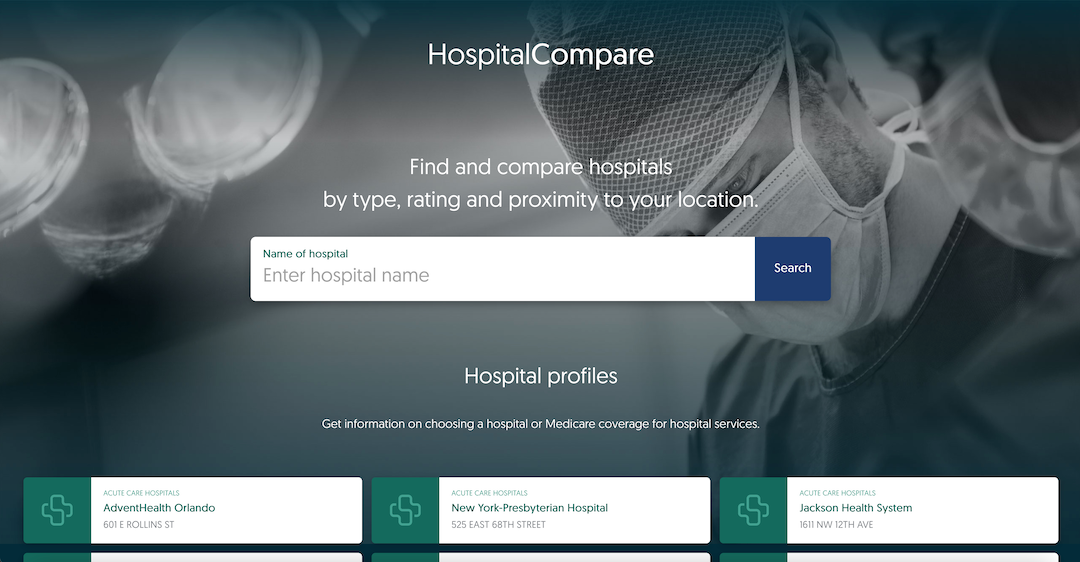
The Hospital Compare project is an ongoing, collaborative effort between Capital Technology Group and Datawheel to rethink the dissemination of public data provided by the Centers for Medicare and Medicaid Services (CMS). Appreciating the critically important and rich data that CMS publishes, we set out on a research and development project to leverage our expertise in software development, data processing, and human-centered design to build a platform that brings CMS’ care and quality data to life through dynamic narratives and data visualizations. Our goal is to deliver a platform that translates CMS’ raw data into an informative and delightful experience in support of government administrators, public health researchers, and everyday citizens.
Our process began with user research. We interviewed stakeholders, including healthcare providers, patients, administrators, researchers and members of the general public. We took the output from these interviews and distilled takeaways into a content outline and high-level sitemap. The content outline served as the blueprint and roadmap for the development of the platform. Once the content outline was ready, we began developing low-fidelity wireframes and user journey maps to crystalize our vision for the user experience. In parallel, we began developing the infrastructure that we would need for our initial prototype.
The project is under active development and currently focuses on two main areas of functionality: viewing detailed data on individual hospitals across a variety of topics and performing comparisons between hospitals along the same variety of topics. Detailed information on individual hospitals is provided in the form of narrative “profiles.” Each hospital profile page is an intelligent, data-driven template that generates an easy-to-follow report that summarizes key statistics from each hospital’s data.
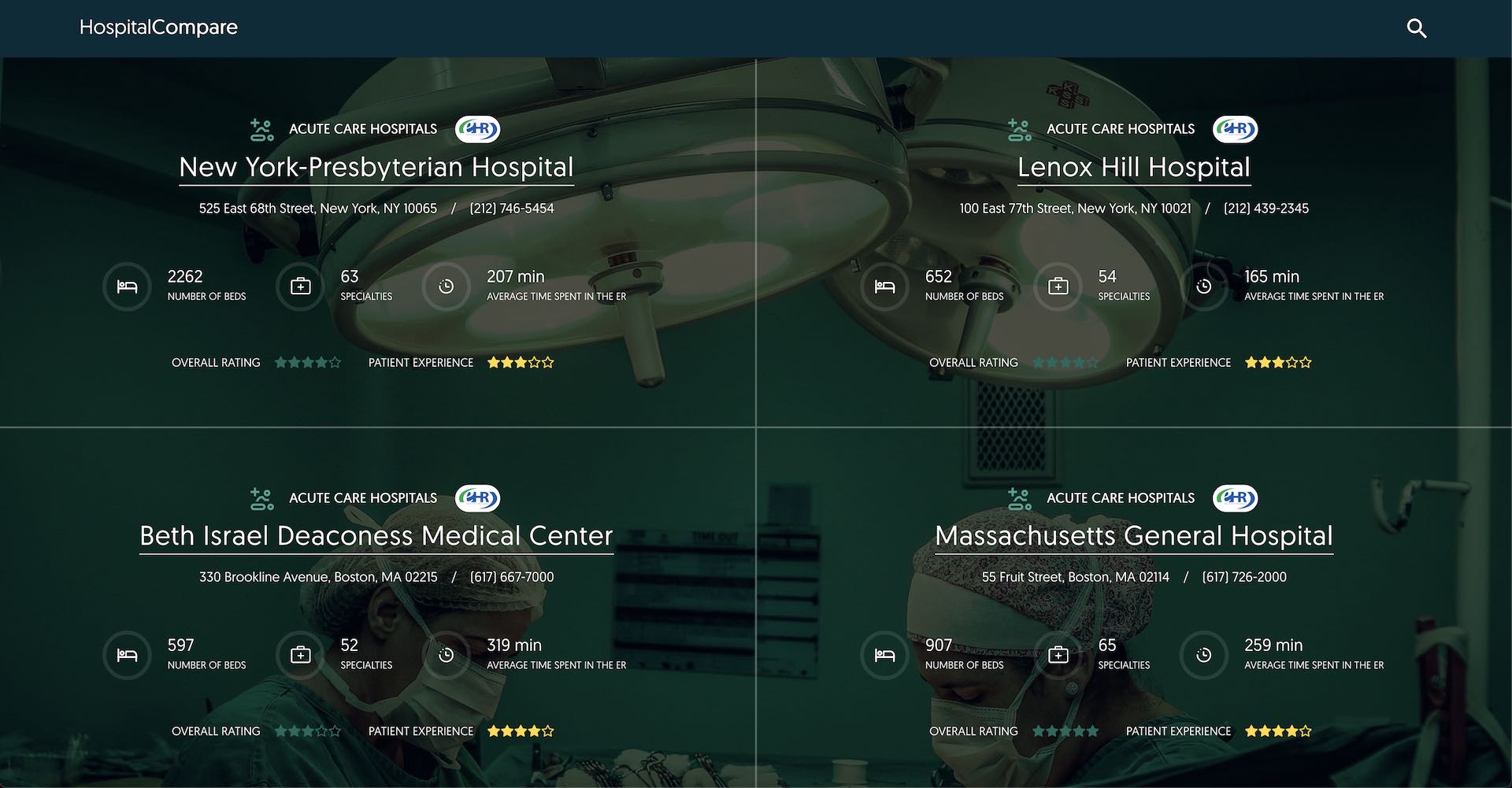
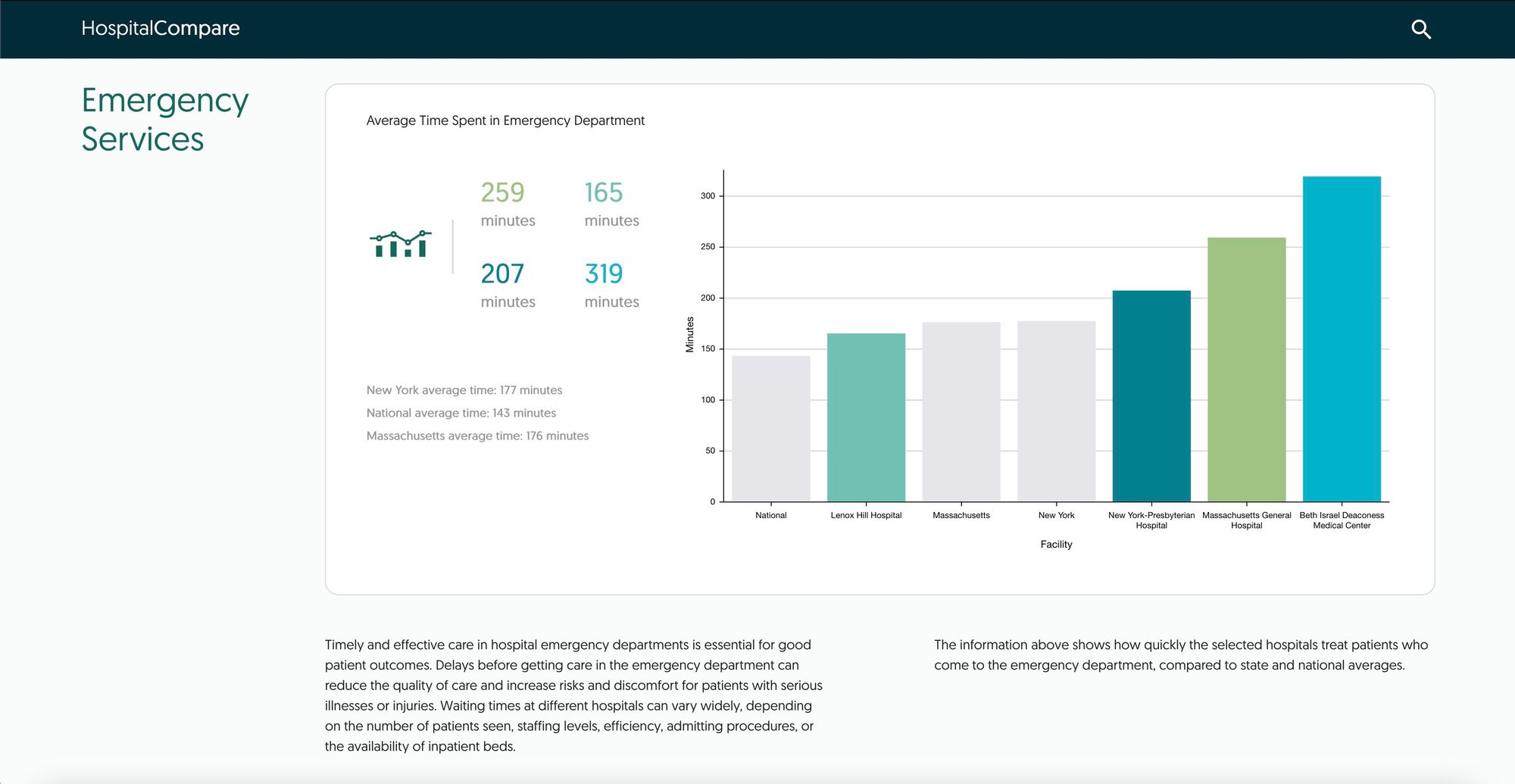
The site covers a wide array of topic areas including:
- Emergency services
- Readmission rates
- Effective care measures
- COVID-19 occupancy rates (including ICU utilization)
- Healthcare associated infections (HAIs)
- Mortality rates
- Payments by condition
- Outcomes and costs comparisons
- Hospital payroll
- Patient surveys
- Provider specialties
From a technical perspective, the project consists of the following key components:
- React frontend built using Typescript and Next.js with server-side rendering. The frontend manages the display and user-facing portion of the platform.
- Flask API backend built using Flask and SQLAlchemy. The API enables data flow from the database to the frontend.
- Data ETL infrastructure built using Pandas and Prefect to manage Extract-Transform-Load (ETL) data pipelines. The ETL manages the cleaning and data ingestion processes that feed the database that powers the backend API.
We use a Kanban methodology managed via GitHub’s Projects feature to remain focused on our guiding Agile principles and to streamline our workflow by keeping user stories and code progress tightly synchronized. We orchestrate our CI/CD pipeline using GitHub Actions. Throughout the entirety of the project, we have worked iteratively, writing code, testing, deploying prototypes, collecting feedback and continuing the cycle.
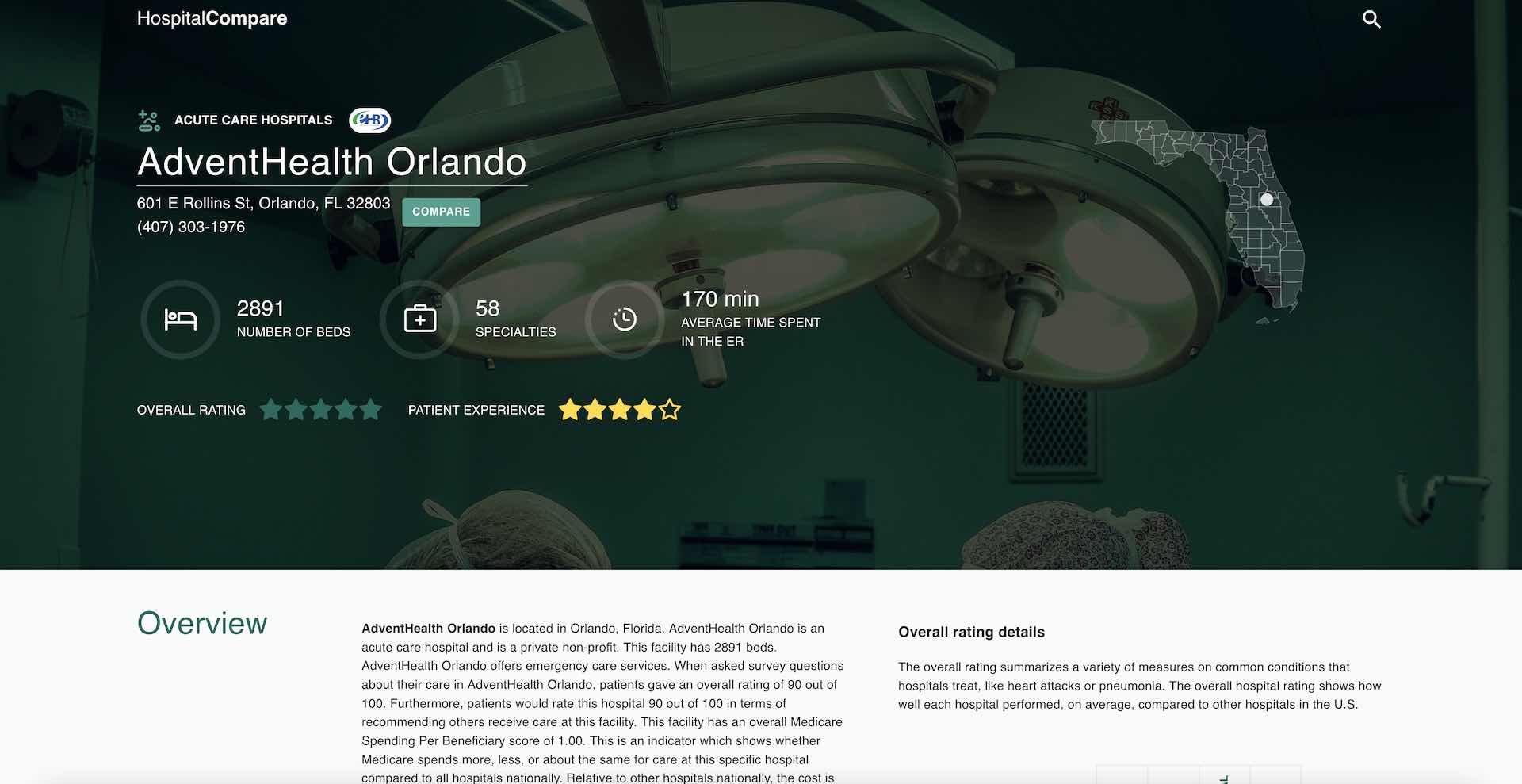
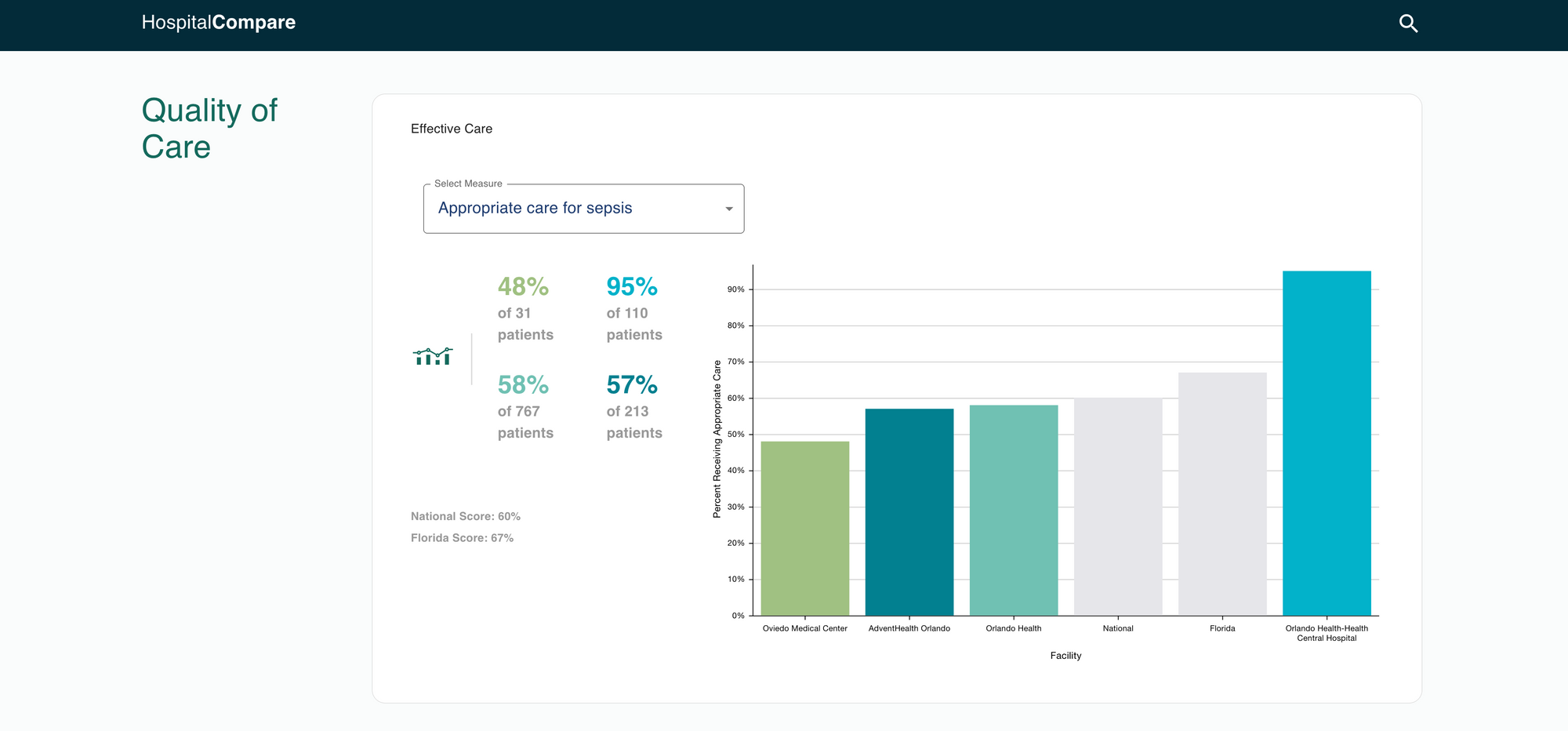
By improving the dissemination of CMS’ healthcare quality related data, we can empower patients, policymakers, and the healthcare industry to better leverage data-driven decision making practices. We continually update the site with the latest data, so be sure to visit HospitalCompare.io.
